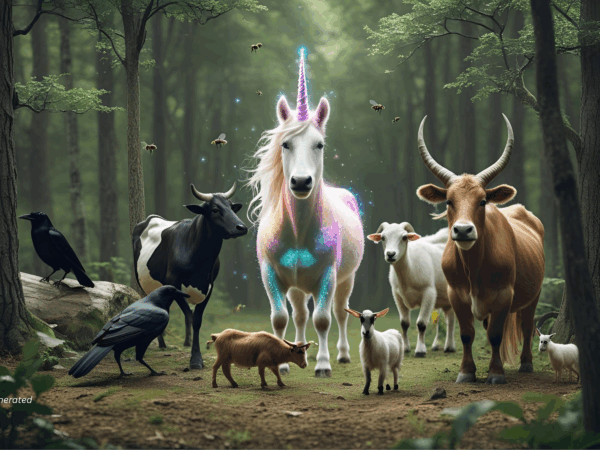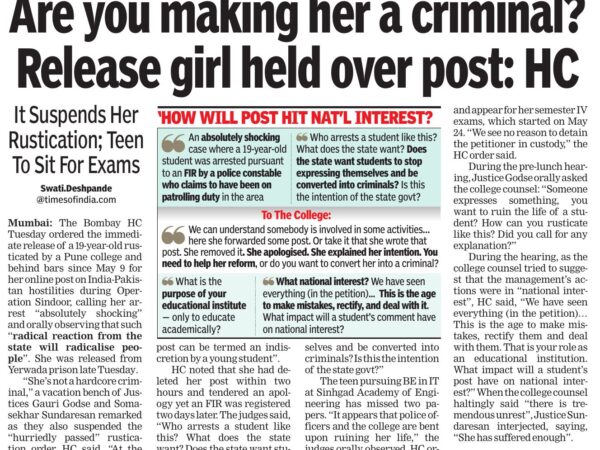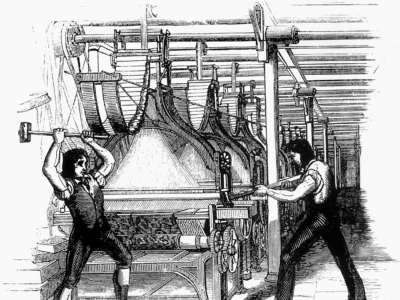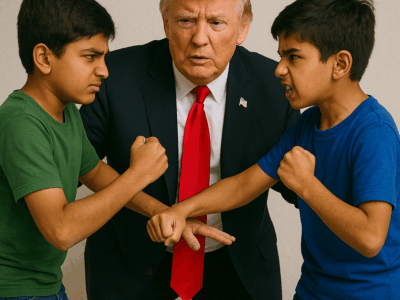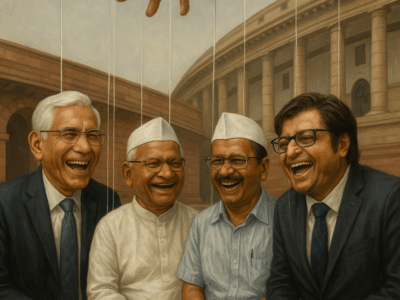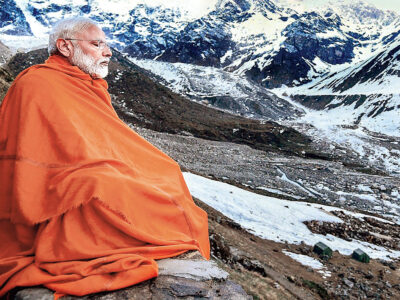- Muslims are a minority community in India, already browbeaten and besieged due to the acts and utterances of this new India that seems to have woken up from what we thought was dead in the recent time (since perhaps the 1990s).
- A Muslim man*, Naseeruddin Shah, raises an issue about Muslims as a society being foolish to celebrate the Taliban victory(?). He asks them (his community) whether they want to progress into the future with reform and modernity, or regress into tribal, barbaric, bestial customs followed by Taliban and their ilk. He says that his relationship with his God is shorn of politics or political statements. He cautions them that they must choose wisely or else the faith would change to a point where we wouldn’t be able to recognise ourselves.
- It is a powerful statement from a privileged and influential person regarding his community.
- However, as the Alphas in India (in this context), Hindus, of whatever stripe, red, blue, or saffron, should refrain from amplifying and commenting on it, because regardless of how we share it and what we say, we come across as patronising, condescending dicks who are punching down on a community using the statement of one of their own as a ‘Gotcha’.
- We may agree with him or disagree. That is immaterial. I am simply saying we have no right to talk to or at the Muslim community about what Naseer saheb is telling or has told them. We should not be judging it, or commenting on it, and least of all, mocking it. Or him. We should not be amplifying it, because by that, we are falling for the narrative of the ‘Good Muslim, Bad Muslim’, when the truth is that every Indian has as much right over this country as every other Indian, never mind their faith or silly superstitions. The right wing picks up things like this and uses it to mock and bash Muslims. The left wing holds this up as an example of someone who has sold out. Both are wrong. He is who he is and he is saying as he sees it. It is for his community to share, comment, amplify, engage, and if possible heed or ignore his advice. We cannot be arbiters here.
Naseeruddin Shah and Mohammed Abdi’s statements about them being Indians first and Muslims later have started a debate where many of those who claim to be liberals have disowned them and painted them with a communal brush. They claim that these Muslims, who are hardly practising Muslims, by speaking out against the larger Muslim population, which sees itself as oppressed and besieged (and which the liberals agree them to be) have given ammunition to the Hindutva groups to use their utterances against the very people they purportedly represent: the Indian Muslims. One of them even called Naseer saheb a Sarkari Mussalman.
When I first saw and heard Naseeruddin Shah’s statement (and a powerful one it was, what with his deep voice full of pathos and authoritative modulation; as an aside I do believe he could have been the Morgan Freeman of India, instead of simply handing over the mantle of ‘deep Indian voice’ to a certain spineless Mr.Bachchan, but I digress), I was tempted to share too, because he speaks the truth (or, to be more honest: I believe he speaks the truth). The Indian Muslims are indeed quite Indian and have more in common with their neighbours, colleagues at the office, social media friends, and people they regularly interact with IRL (who could be of any of the 4,300 religious faiths in the world) than the Uzbek Talib or Chechen Mujahid or Palestinian Hezbollah fighter wielding an AK-47 as he awkwardly tries a softie ice-cream for the first time or gets angry and aroused at the same time if he accidentally sees a woman’s ankles.
The Indian Muslims share a sense of history and continuity, even if they carry in them genetic material from all around the world, India having been at one time much like the USA today: attracting everyone from soldiers of fortune to travelling monks, economic migrants to the religiously oppressed, and pursuers of fame and pelf as well as seekers of peace and spiritual calm.
Side note: We all carry genetic material from across the world. This is not news because the only ‘aboriginals’ have been the Africans. We are all the descendants of our African mother and usurpers of land belonging to plants and animals before we arrived on the scene.
In short: yes, I agree with Naseer saheb that an Indian Muslim staying in India celebrating what s/he sees as a ‘Muslim’ victory over the USA is literally the definition of ‘बेगानी शादी में अब्दुल्ला दीवाना’. At best it is cringe-worthy, naïve, and misguided, and at worst stupid, dangerous, and self-harming, though I wouldn’t go so far as to call it seditious, as it is made out to be by the Indian Right-Wing.
So, why not pick his statement up and hold it aloft for the world to see?
Well, to answer this question, we need to understand a bit about power equations and the asymmetry that exists in any culture, civilisation, or country: a graded populace which has people with power, privilege, and wealth at one end of the scale and the oppressed, denied, and forever starving at the other. While I will not make a case for this differential to exist, I will at least acknowledge that it does, and will probably continue so far as human civilisation(?) exists. The haves and the have nots will always be around, even if what the have nots do not have and what the haves have keeps rising over time as the tide at its flood raises all boats. Confused? No problem. All we have to remember is that there will always be disparity in access to resources, wealth, and opportunity regardless of how advanced a civilisation we become.
Let us now take two groups: one who has a demographic majority, higher percentage of wealth and political power, and/or more opportunity and/or a combination of these (we shall call them the Alphas, for argument’s sake), and the other who is the opposite in terms of demography, wealth, political power, and/or opportunity combinations (let us call then Omegas, for argument’s sake). Note that in any given circumstance, one may belong to the Alphas while in some other, one may be in the Omegas. There are, of course, permanent Alphas who possess all the positives and none of the negatives, as there are permanent Omegas. So, basically, you get a spectrum, with only the context of the circumstance deciding which group you fall into.
How do you know which is which? Well, just take a look at a situation and put the players in it to see its context and you will know who is who. For example, in case of a Hindu and Muslim in India, a Hindu-majority country, the Hindu is the Alpha and the Muslim, the Omega all other things being equal; in a situation where the two parties are Male and Female, the Male is the Alpha, all things being equal; in an educated person and uneducated one, the educated one is the Alpha, in a case where the two parties are Savarna and Dalit, the Savarna is the Alpha, and so on.
We good? OK, the next one is easy too. A punching up v/s punching down. That means that from the above examples, a woman can crack a joke on men and everyone can join in the laughter, while the other way is trickier. Because punching up is always funny (it hurts no one, bullies no one, threatens no one, makes no one feel unsafe or unwanted and makes the privileged just a wee bit uncomfortable and queasy) but punching down is immediately cringey. It makes the other person feel bullied and threatened and makes everyone but the person who cracked that joke uncomfortable. Not a good situation, you’d agree. All the ‘allowed’ and ‘not allowed’ that I use in this post/article are about this.
So, when I say X is ‘allowed’ something, I mean to say that X may say or do that something without anyone else feeling unsafe, de-platformed, threatened, dehumanised, and/or their lived experience/self-worth lessened. When I say X is ‘not allowed’ something, I mean to say that if X were to say or do that something, there will be others who are Omegas to X’s Alpha who would feel unsafe, de-platformed, threatened, dehumanised, and/or their lived experience/self-worth lessened. I do not mean that there is or ought to be a law to ‘allow’ or ‘disallow’ X saying or doing something. I am simply saying that if X says or does something that is, in polite and civilised society, ‘not allowed’, that’s a dick move by X. And I am assuming no one in my friends’ circle wants to be a dick.
You with me till here? Great. The next is about raising issues and introspection. For example, the level of education and the quality of leaders, or regressive traditions and oppression of women in a particular community is best raised by those inside that community. But others from the outside can raise it too, with four caveats: that they (the people raising the issue) are recognised experts (maybe a PhD, maybe published work, whatever) in the subject, or they are elected representatives from a constituency with that specific community as majority, or have been requested/appointed by that community to represent them in a specific case and with a specific purpose, or they are the Omega vis-a-vis the community about which the issues are being raised, in short, they are punching up.
Let us try this with another example: If a Dalit speaks or writes of Brahminical tyranny, I, whose last name gives me the privilege accorded to Brahmins, am allowed to amplify it without modifying it (though I may write my commentary and viewpoint without editing or disparaging or dismissing the original), for it is the lived experience of someone else and in this relationship, I belong to the Alpha group and the speaker/writer to Omega. Another Dalit is also allowed to share it, talk about it, discuss and debate it, even disagree or defend it. If a Brahmin writes about Brahminism and its flaws, both, the Dalit and I are allowed to share, comment, modify, fight over, debate, discuss, deny, falsify, and even mock it, for there is no punching down involved in this, and no one gets hurt, except some fragile egos, which don’t matter. But if a Dalit writes about women being oppressed in the Dalit society, I should neither share nor amplify it. I have no right to comment or mock it. Perhaps, if I am a woman, even if Brahmin, I may, by a long shot, have some right to speak of it. But even then, I would have to be very careful as to what I say. Because this can very easily become an exercise in punching down, and that, as I have clarified, is a dick move, whether you have one or not.
Finally, we get to Naseer saheb’s video, which now I have shared below (to provide context only). Here is what I believe:
*Side note: For those who claim people like Javed Akhtar and Naseeruddin Shah are atheists, let me quote Saadat Hasan Manto who, when asked why he, a non-practising Muslim, should be afraid of Hindu-Muslim riots, said quite poignantly, ‘इतना तो हूँ के मारा जा सकूँ।’, meaning I am enough of a Muslim for the Hindu lynch mobs should they come for me.
Another side note: Unfortunately, I am an Islamophobe in the technical sense, that I do not agree with and indeed fear Islamic beliefs. But I am also a Hindu-phobe and a Christian-phobe. I am an agnostic atheist and hold the view that all religions are evil. However, it would be a mistake to classify me as a Muslim-phobe or Hindu-phobe or Christian-phobe. I am pro-humans, anti-religion. I do NOT hate the believer. I hate the belief. I think it is time for the world to think of better words to describe people like me. Because while I am happy to be called an Islamophobe, I do not fit into the mould that word has come to mean, and uncomfortable with the fact that others see me as someone who hates Muslims rather than someone who is fearful of the influence of Islam and all the superstitious baggage it carries. To be against superstition and fearful of dogma (and what it does to the human brain) should not mean hating people.
But if we were capable of loving the sinner while hating the sin, we wouldn’t have invented religion in the first place to tell us this.


